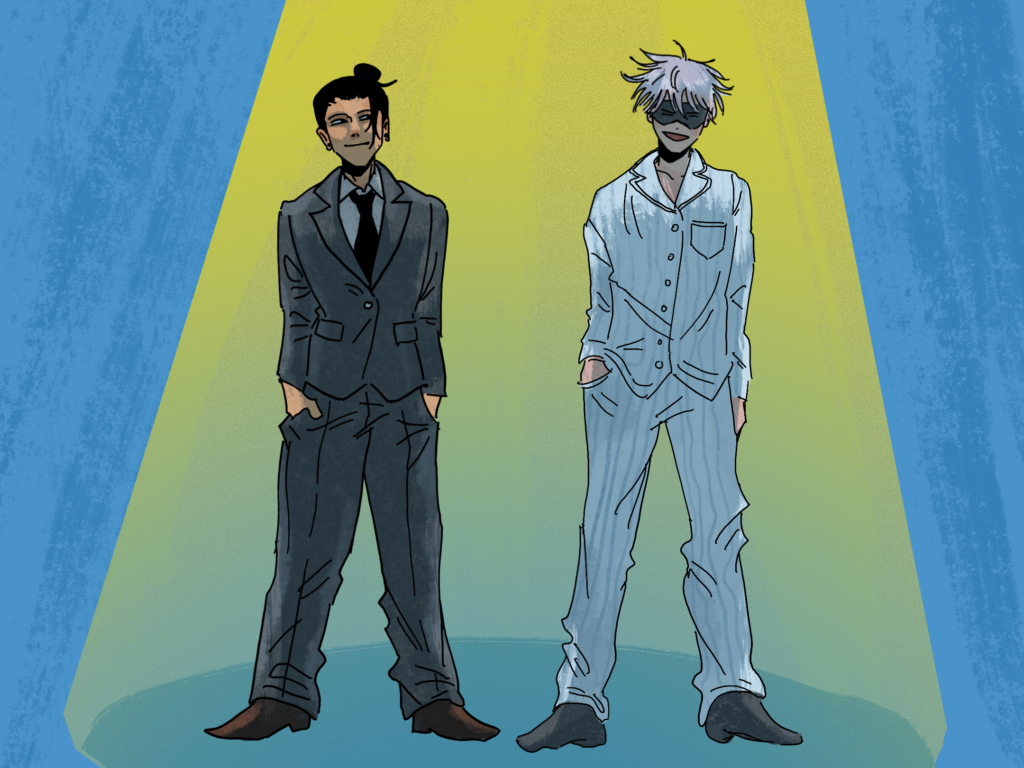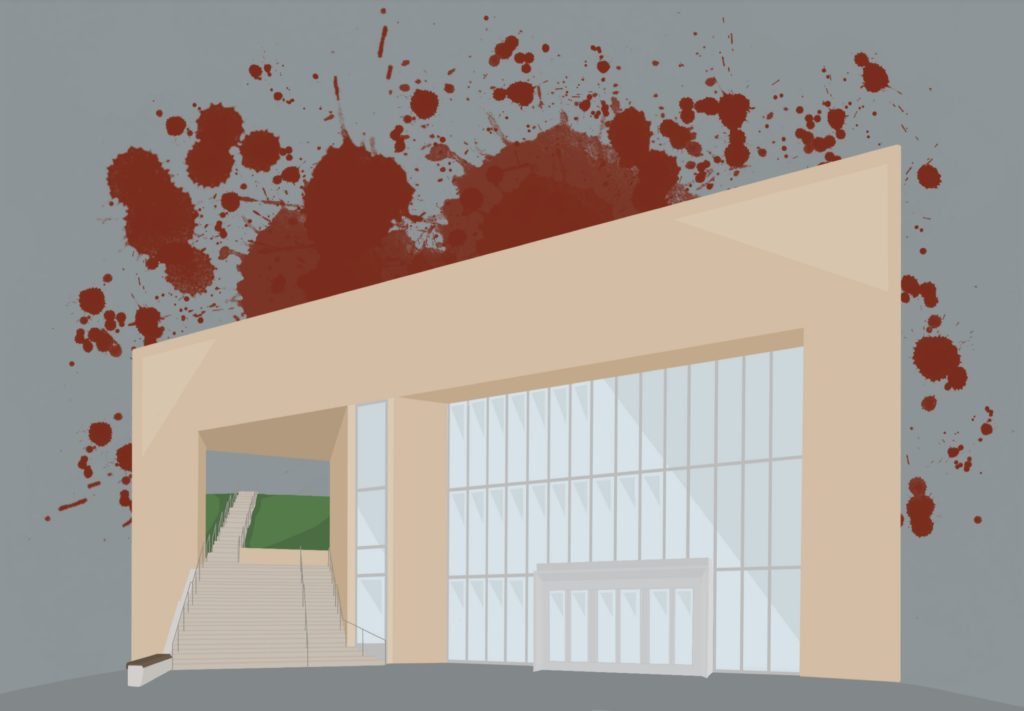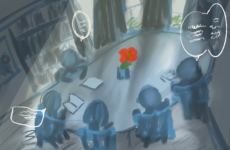
By Steven Kee ’27
Pajamas. Soft, loose clothing that is worn in bed and consists of pants and a shirt. That is how they are defined in the Cambridge Dictionary. Pajamas are meant to be worn in bed, not in class. Choate needs to start listening to the dictionary and reflect the true definition of pajamas in the School’s dress code by not allowing students to wear them to class.
Our school is known amongst the circle of boarding schools for having a lax dress code. While some are proud of this notoriety, I certainly am not. Wearing pajamas limits students’ academic performance, leads to unfocused behavior, and helps create an unprofessional learning environment.
I consider myself a pretty casual dresser. I admit to wearing sweatpants and hoodies to class from time to time; however, these types of clothing, unlike pajamas, are meant for going outside and designed simply for comfort. A line must be drawn when students start sitting at their desks in what they slept in because such a casual learning environment may stymie their performance at school.
Critics of my belief may argue that students wear pajamas to class because they are comfortable. While I agree, studies show that they are too comfortable for the classroom. According to psychologists Hajo Adam and Adam Galinsky, “enclothed cognition” is how a person’s choice of clothing limits their psychological processes. For example, when a doctor wears a lab coat, they have increased sustained attention than when they are wearing a painter’s coat. Considering this, research backs the claim that students perform better when they are wearing proper daytime clothing in lieu of pajamas.
Another psychologist Dr. Jennifer Dragonette said that as we subconsciously associate wearing pajamas with bedtime, wearing them decreases our motivation and makes us feel sluggish.
When we blur the line between pajamas and school clothes, we are simultaneously blurring the line between bedroom and classroom. This results in behaviors and mentalities that are not fit for a learning environment, causing negative effects on our learning.
I do not believe that Choate should have a strict dress code that requires us to wear a uniform or that bans casual clothing like sweatpants and hoodies because we should be able to wear what is comfortable for us. However, there are plenty of other types of “comfortable” clothes that don’t limit our academic performance like pajamas do. A restriction on pajamas is necessary in order to improve student productivity.
By Pete Areewong ’27
I am happy to say that us Choaties love to wear our pajamas to class, and I believe that lax dress is a defining characteristic of the Choate community. At Choate, we have hard-working students who excel in their academic classes while maintaining a casual and comfortable environment, setting us apart from a lot of our peer schools. Wearing suits and dresses on a day-to-day basis would make Choate indistinguishable from Deerfield, who must spend hours each morning sprucing up for the day.
Most students perform better when they feel comfortable not only in their environment, but also in what they choose to wear that day. Additionally, a formal dress code at Choate would be unfair to those who do not have the means to buy a school week’s worth of formal clothing. Not implementing a strict dress code ensures that everyone in the community feels comfortable in what they want and are able to wear to class. At its core, the School’s support of pajama-wearing reflects its goal of making students feel comfortable by allowing them to express themselves through dressing as they see fit.
Dr. Alan Tepp, a child and adolescent psychologist, argued that wearing pajamas to class makes high school students more emotionally comfortable as well. In an interview with The New York Times, he explained that “during the stress of midterms, Regents, finals, this would be a time when you would retreat to a time of your life when you were taken care of, that whole world of Dr. Denton’s and flannel pajamas.”
Considering Dr. Tepp’s professional viewpoint, it makes sense that Choate students have found solace in wearing pajamas all day, every day. Not only are we almost always stressed, but we are away from home and required to take care of ourselves here. It makes sense that we unconsciously yearn for a time when we were constantly cared for by our caregivers.
In an already rigorous and work-heavy environment, I am grateful that the School gives students the freedom of choice regarding their clothing. Ultimately, the ability to choose what we want to wear to classes is a facet of Choate culture that has solidified itself in our community, and it would be incredibly outrageous to try and change that.




